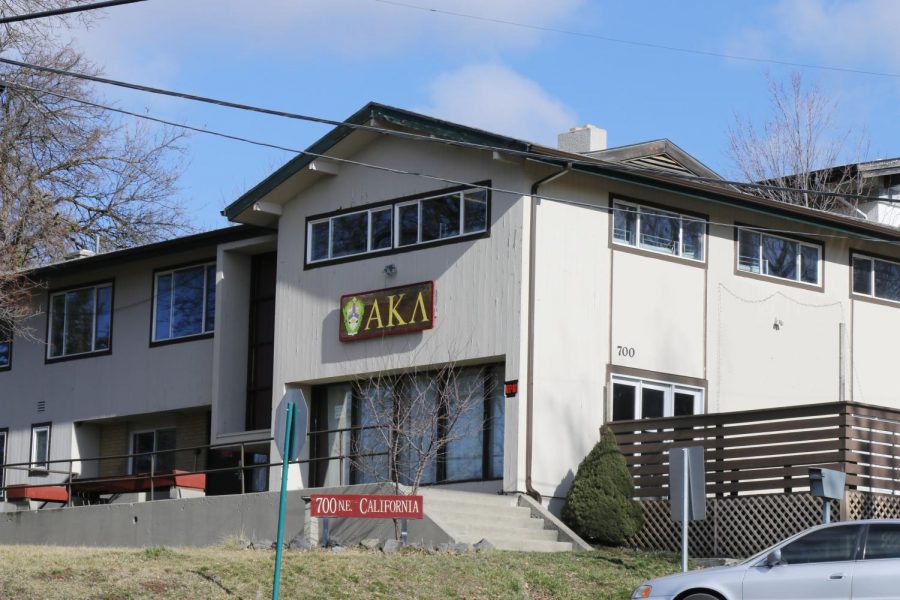AKL hazing allegations include drinking games, hospitalization
Some members say they didn’t go through training or realize activities were hazing
Alpha Kappa Lambda was forced to shut down after allegations of hazing were brought before Student Conduct and the fraternity’s national chapter.
February 13, 2018
Pledges of the Eta Chapter of the Alpha Kappa Lambda fraternity were allegedly hazed and two were hospitalized last semester. This led to the shuttering of their WSU chapter in December and multiple investigations, during what many members referred to as “bonding activities.”
Over a series of four incidents from August to October, hazing and other risk management violations like underage drinking caused both emotional distress and injury to new members, according to WSU Student Conduct investigation documents obtained by the Evergreen.
During rush week activities, a pledge was hospitalized for alcohol poisoning. In interview notes from the documents, a member describes finding him vomiting and unresponsive. The upperclassmen took him to the hospital.
In the final incident on Oct. 9, initiated members confiscated pledges’ cell phones and other belongings. They forced the members to stand against a wall, berated them and made them do wall sits. Pillow cases were placed over their heads and 40-ounce bottles of Hurricane-brand malt liquor were duct taped to their hands as part of a drinking game called “Edward 40 hands.”
According to the documents, members couldn’t leave the wall until they finished their drinks. In addition, a pledge was burned by a lighter that may have been held by an upperclassmen member.
Other activities detailed in the investigation documents included a drinking game called “Don’t F— Your Brother” where members passed a wine bag around until it was empty; they also broke a bean bag on the floor and made pledges clean up the mess while duct taped together and forced pledges to clean the house with toothbrushes, according to the documents.
Former president of AKL Maxwell Zimmerman declined to comment.
AKL’s national headquarters suspended the WSU chapter in October. The university and the national headquarters shut the fraternity down in December.
“The behavior that the investigation revealed was clearly hazing,” Daniel Welter, associate dean of students and director of the Center for Fraternity and Sorority Life, wrote in an email.
He wrote the student conduct investigation is now wrapped up and any further action is up to the organization’s national chapter, which also conducted its own investigation.
In interview notes taken by student conduct officials, members said pledges drank of their own volition. A few students said they experienced similar behavior when they were freshman and didn’t believe the activities were hazing. Some members said they hadn’t been through anti-hazing education, some said they hadn’t received support from their national chapter. One upperclassmen told an interviewer he had failed.
“We see now that it’s bad,” he told the interviewer, “not our intention.”
Jeremy Slivinski, CEO of the AKL national chapter, and Brandon Crawford, public relations director of WSU’s Interfraternity Council, said fraternity members’ claims that they didn’t know what they were doing was hazing and they hadn’t received hazing education, were inaccurate.
“I don’t buy it when students say they didn’t know what hazing is,” Slivinski said.
He said hazing and the chapter’s culture were inconsistent with the fraternity’s values. He added he didn’t believe members who said they hadn’t been hazed as freshman because of his knowledge of the fraternity’s past issues.
A decade ago, AKL was shut down after a member was caught in a cocaine bust when he sold drugs to a federal informant, according to Evergreen archives. The following investigation revealed the member had been selling drugs out of the fraternity’s live-out. There were also other internal issues, such as underage drinking and hazing.
WSU suspended AKL for five years to ensure all members would graduate before the fraternity could regain recognition. In 2013, AKL applied and regained recognition by both the university, the IFC and their national chapter.
Slivinski said when the fraternity was reinstated, it was under scrutiny from both the national chapter and the university itself. He said members probably would have been caught by now if they had been hazing since they were reinstated.
Crawford said the IFC recognized hazing as a community issue and is addressing it by emphasizing their specific training and policies.
“We don’t condone hazing and the fact that this is going on is sad,” he said.
Crawford said trainings emphasize recognition of when and how to report hazing or other activities chapters might be doing which make pledges uncomfortable.
He said entire fraternities should also go through more education and training.
“We want to make sure they understand that they, as new members, have just as much say as any other person in the house,” he said.
[pdf-embedder url=”https://dailyevergreen.com/wp-content/uploads/2018/02/Emails-from-student-conduct-investigation-AKL.pdf” title=”Emails from student conduct investigation AKL”]










